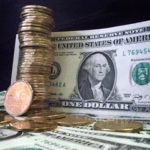British pound showed little change against the US dollar on trading Wednesday, as investors used caution, making decisions just ahead of the anticipated statement on monetary policy by the Federal Reserve Bank later in the day.
GBP/USD distanced from its lowest point today at 1.5198, reached at 7:14 GMT, to trade at 1.5236 at 8:12 GMT, dipping a mere 0.02% for the day. Support for the pair was likely to be found at July 18th low, 1.5158, while resistance was to be met at July 19th high, 1.5281.
Markets remained edgy, because recent economic data from the United States boosted uncertainty over the future of the Federal Reserve’s Quantitative Easing. On Tuesday the Conference Board said that consumer confidence in the United States declined to 80.3 in July from 82.1 during the preceding month, while projections pointed that the indicator will record a lesser drop to a reading of 81.4. Another report by Standard & Poor’s and Case-Shiller said that the composite index of home prices advanced by 12.2% in the month of May on annual basis, slightly below the expected 12.4% rise. In April data showed a 12.1% advance.
Investors were also expecting the decision on monetary policy by the Bank of England, scheduled to be announced tomorrow.
Meanwhile, the pound reached a four-month low against the euro, because the British Retail Consortium-Nielsen Shop Price Index dropped by 0.5% in July, deteriorating in comparison with the previous month, when the drop was 0.2%. EUR/GBP cross was trading at 0.8727 at 8:21 GMT, up by 0.24% for the day, which was sterlings weakest point against the common currency since March 13th. The pound was losing ground against the yen as well, with GBP/JPY pair down by 0.35%, trading at 148.90 at 8:23 GMT.
The Sterling has lost 1.4% of its value during the past month, according to Bloomberg Correlation-Weighted Indexes, which track 10 developed-nation currencies. The euro has advanced 0.7%, while the US dollar decreased by 1.4%.
Later in the day the United States was expected to publish data, regarding the Gross Domestic Product, ADP Employment Change, personal consumption expenditures and Chicago business survey on manufacturing.





